I have so many half-written posts saved to my computer that have begun to discuss Postnatal Depression and then fizzle into nothing.
And, despite the fact that I have been sitting here for twenty minutes now with only that one sentence above in front of me, I am determined to finish this. To write about it.
Before I go any further, let me just say that I am getting better now. I am still plagued by days where life feels like this, but this is no longer the underlying feeling that flows through me constantly. I have never reached any point where I feel that there is a serious danger to either myself or my babies, and for that I am both grateful and lucky. I am getting help, I have begun to speak about it, and I am getting better. Acknowledging its existence, that it is different from normal new mum stress, has been a big step for me.
I always thought that postnatal depression was signified by lacking a bond with your baby, or by wanting to do harm to your baby. I thought it was being filled with such desperation to either get your baby to just stopthat you want to leave forever, or by having the desire at 3am to throw your baby out of the window. I thought that the fact that my babies are absolutely the most beautiful babies that have ever walked this earth (fact), and that my love for them is so strong, meant that I didn’t have postnatal depression. I suppose for some women, this is indeed how it manifests, but not for me.
 |
| (photo by Olga Bushkova) |
Postnatal depression for me is a feeling of emptiness. It is the feeling of being so overwhelmed, so anxious, so emotionally isolated for such a long time that the only way to deal with these feelings is to just be empty. When things are particularly bad, I simply can’t get it together to pick up my crying baby; I just sit next to him and stare at his scrunched up face with such hopelessness, until I find myself staring into space. When things are particularly bad, I can’t smile when my two boys are making each other giggle hysterically. I just sit there, a robotic observer, trying to find a way to cope, realising that I am in a golden moment right now and I can’t even properly see it. I don’t cry, I turn to stone. And then of course I am filled to the brim with guilt over such things.
Postnatal depression for me is a complete lack of resilience. I can be fine one moment, and then one small unpredictable thing occurs that spirals me into a state of anxiety and overwhelm. This can be as small as my husband unexpectedly suggesting we pull into a petrol station on my way home with everyone in the car. That wasn’t a part of the plan, you see. There is no room whatsoever for any form of spontaneity, due to the irrational fear that something will go awry. This manifests into a need to be entirely in control of everything all of the time, which obviously makes me a pretty (very) tough person to be around. This, in turn, continues to make me not like the person that I am, the person that I am modelling to my children.
Postnatal depression for me is an overwhelming fear that something bad will happen to my children. Actually, scrap that. It is an overwhelming fear that one of my children will die. I have never voiced it before, but I feel quite a weight removed now that my eldest has made it to three, as it seems that so many fatal accidents occur when children are two. This manifests in a need to be so constantly on, that I begin to drown under the weight of responsibility. Terrible thoughts enter my mind about so many possible what ifs, and with such detail, that I just can not turn off. Perhaps all parents fear that their child will ride their bike onto the street in front of a car, but for me, I then find myself completely immersed in this fear: where would I be standing when I see it, what would I hear, how would he look, what would I smell, how would I sound, where would his bike be, what would the driver do, who else was there, what then would happen, who would call an ambulance, how would I speak (English or German), how would my husband and I cope with the grief, would we have to move back to Australia, how would it impact on his brother, etc etc etc. And this is just one in perhaps a thousand catastrophic scenarios that occur to me. It is an absolutely constantbattle to keep such thoughts under control, to distract myself the moment that it enters my brain, to mentally slap myself into reality.
 |
| (photo by Olga Bushkova) |
It is only in these last few weeks that I am realising now that I have probably had some kind of postnatal depression or anxiety ever since my eldest was born. And that I probably-most-definitely-probably had some kind of antenatal anxiety. My pregnancy with my second was rough. Not physically, but emotionally. I grieved for how I was going to lose my first boy, that stunningly beautiful and gentle child, the moment that my second was born. I spent so many evenings next to his bed as he had just fallen asleep, tears streaming down my face with the knowledge that this life was about to end and that I will never, once this new baby comes, be able to be the mother that I wanted to be to him one hundred per cent of the time. I felt as if I’d just have to give him up – to give him to his dad forever — and I didn’t want to lose him. I could never imagine a scenario where I would ever choose that baby in my belly over him. I envisaged both crying simultaneously, and just putting the new baby in the bathroom and closing the door so that I could help my big boy. But I knew that the best thing that I could do for my sensitive little toddler, in the long term, was to give him a sibling. And so that is what I did. For him. It was only when I was around 7.5 or 8 months pregnant, and after some counselling and a lot of discussions with my husband, that I began to envisage that baby in my belly as an actual person, and not just an object that would take me from my eldest. And my contractions started not long after…
 |
| (photo by Olga Bushkova) |
But even when I was in the deepest trench of all of this, I still loved my babies whole-heartedly, needed to do the best for them, to be the best for them. And that includes modelling how to reach out for help, how to deal with big feelings and to give them a name, how to argue, how to heal. Now, I have my days. I have my couple-of-days. I am learning what my triggers are. But now I am able to laugh with my beautiful babies, to soak up the joy on their ecstatic faces when they watch me laugh out loud after they accidentally squirt my face with water. I am capable of being filled with joy without a permeating fear running through it all. I am no longer a functioning stone. I am doing my best to not isolate myself, to have coffees with friends, to talk. Having children certainly makes this easier, as I do not have the option of staying in bed all day and hiding, or hibernating from the world. We must go on walks, we must go to playgrounds, have play dates, go to the shops, talk and sing and dance and jump and laugh and hide and pretend and tickle and experience life.
There. I’ve written it now. Phew.



